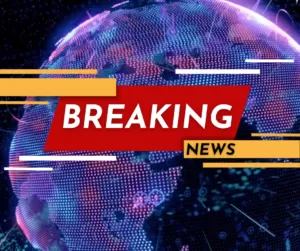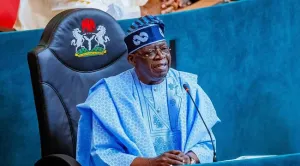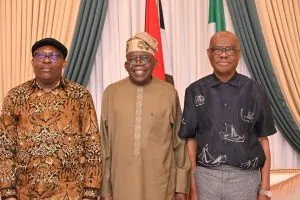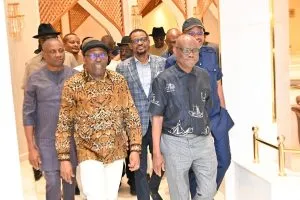Tinubu Brokers Truce in Rivers Crisis: Fubara To Be Reinstated as Governor with Condition Not to Seek Re-election in 2027
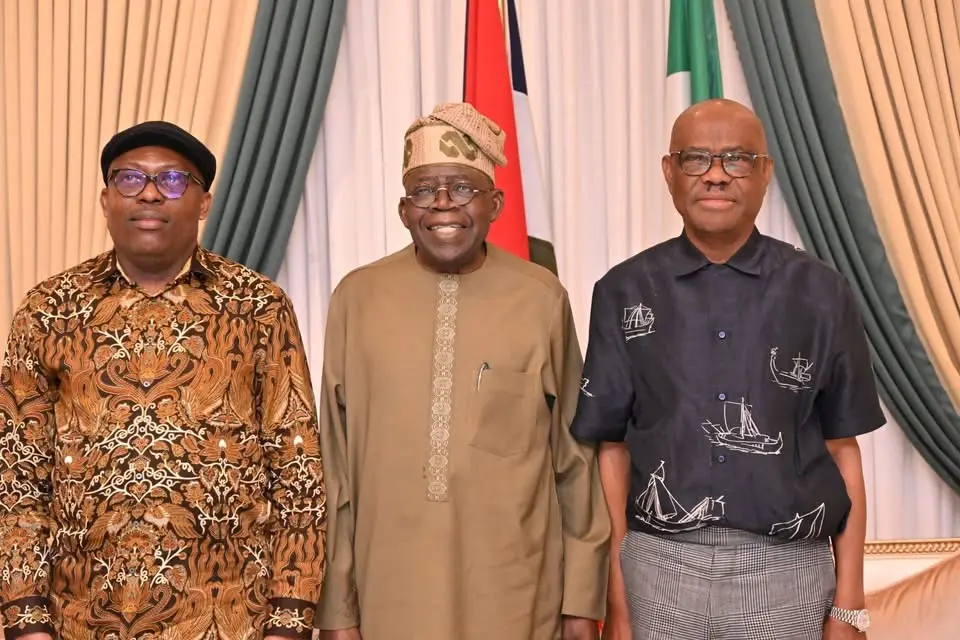
In a significant development aimed at resolving the ongoing political crisis in Rivers State, President Bola Tinubu has reportedly agreed to reinstate Siminalayi Fubara as the governor of the state, but with a critical condition: Fubara must forgo any ambition to seek re-election in 2027. TheCable has learned that this truce was brokered during a closed-door meeting held on Thursday night at the Presidential Villa in Abuja, attended by key figures including Nyesom Wike, the Minister of the Federal Capital Territory (FCT), Fubara, Martin Amaewhule, the suspended speaker of the Rivers State House of Assembly, and a select group of lawmakers.
The agreement is part of a broader effort by President Tinubu to restore democratic order in Rivers State, which has been embroiled in a political standoff between Fubara and his predecessor, Wike. The crisis, rooted in a power struggle over control of the state’s political machinery, had escalated to the point of threatening governance and stability in the oil-rich state. Sources close to the presidency revealed that the deal involves significant concessions from both sides, with the aim of de-escalating tensions and ensuring a return to normalcy.
Key Terms of the Agreement
According to insiders, one of the central terms of the truce is that Governor Fubara will be reinstated to complete his four-year tenure, which began in 2023, but he must agree not to contest for a second term in the 2027 gubernatorial election. This condition is seen as a strategic move to limit Fubara’s political influence in the long term, thereby reducing his clout in Rivers State politics. Despite the restriction, sources indicate that Fubara has accepted the terms, signaling his willingness to prioritize peace and governance in the state over personal political ambitions.
Another critical aspect of the deal grants significant influence to Nyesom Wike, who is widely regarded as a political heavyweight in Rivers State. As part of the agreement, Wike, the immediate past governor of the state and a key figure in the crisis, will be allowed to nominate all local government chairpersons across the 23 Local Government Areas (LGAs) of Rivers State. This move effectively hands Wike substantial control over grassroots governance, consolidating his influence in the state’s political structure.
Background of the Crisis
The political crisis in Rivers State stems from a fallout between Fubara and Wike, who, despite being members of the same political party, the Peoples Democratic Party (PDP), have been at odds over control of the state’s political machinery. The tension escalated when a faction of the Rivers State House of Assembly, led by Speaker Martin Amaewhule, moved to impeach Fubara, prompting his suspension and the emergence of a rival faction in the assembly. The crisis led to significant disruptions in governance, including the suspension of local government activities and a breakdown in legislative functions.
President Tinubu’s intervention is seen as an attempt to mediate between the warring factions and prevent further deterioration of the political situation in Rivers State, a key economic hub due to its oil and gas resources. The closed-door meeting at the Presidential Villa was described as a high-stakes negotiation, with Tinubu leveraging his influence as the leader of the All Progressives Congress (APC) and Nigeria’s president to broker a resolution.
Implications of the Truce
The reinstatement of Fubara as governor is expected to restore a semblance of stability in Rivers State, allowing the state government to resume normal operations. However, the condition that Fubara will not seek re-election in 2027 has sparked mixed reactions. Some political analysts view it as a pragmatic compromise to end the crisis, while others argue that it undermines Fubara’s political agency and hands Wike disproportionate control over the state’s future.
Wike’s ability to nominate all 23 LGA chairpersons further strengthens his grip on Rivers State politics, potentially positioning him as the dominant force in determining the state’s political direction ahead of the 2027 elections. This arrangement could also have implications for the PDP’s internal dynamics in Rivers State, as well as its relationship with the APC at the national level.
Reactions and Next Steps
While the details of the agreement have been confirmed by presidency sources, there has been no official statement from either Fubara or Wike as of now. The Rivers State House of Assembly, which has been a focal point of the crisis, is expected to reconvene and formalize the reinstatement of Fubara, with Amaewhule and other lawmakers playing a key role in implementing the truce.
Observers are closely watching how the agreement will be implemented and whether it will hold in the face of potential resistance from factions within Rivers State. The deal also raises questions about the future of governance in the state, particularly how Fubara will navigate his remaining tenure with the limitations imposed by the agreement.
Conclusion
President Tinubu’s intervention in the Rivers State crisis represents a critical step toward resolving one of Nigeria’s most high-profile political disputes. By reinstating Siminalayi Fubara as governor while imposing conditions that favor Nyesom Wike’s influence, Tinubu has attempted to strike a delicate balance between competing interests. However, the long-term success of this truce will depend on the willingness of all parties to adhere to the terms and prioritize the interests of Rivers State’s residents over personal or factional ambitions.
As the situation unfolds, the people of Rivers State and political stakeholders across Nigeria will be watching closely to see whether this agreement marks the beginning of lasting peace or merely a temporary pause in the state’s turbulent political journey.

